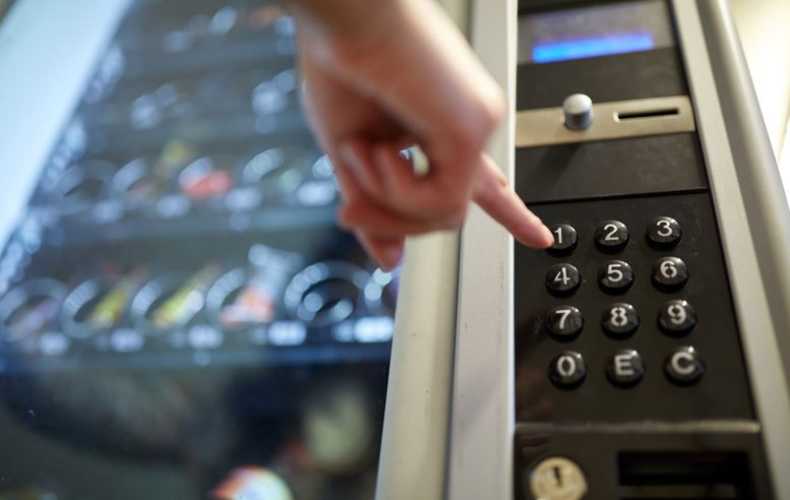How to Start a Vending Machine Business

Entrepreneurs looking to enter the vending machine industry will gain many advantages. Unlike traditional companies, vending machine businesses allow for more flexibility. Not only can you start part-time in this industry, but you can also choose schedules and locations.
Even with having more freedom to shape business operations, it does not limit you. Owners can still expand the company, generate profits, and grow their success.
Thus, you can start with one vending machine, gradually growing to become the owner of a fleet of machines. Business owners can work at their own pace to meet entrepreneurial targets.
An Insight into How a Vending Machine Business Operates
Before becoming a vending machine business owner, it is ideal to know the ins and outs of its operations. Entrepreneurs looking to make their mark in the vending machine industry will need to understand what it involves.
Business owners need to own, install and manage one or more vending machines. Owners must also market to property owners before they can market to buyers. You will need to get permission to install any vending machine in specific locations.
Establish agreements with commercial property owners and other places like malls. The more deals you can make with locals are crucial to growing the business. The arrangement will allow you to install vending machines in exchange for a fee or percentage of profits.
Vending machine owners are responsible for the inventory and stocking machines. Whether the equipment is to hold beverages, sandwiches, gumballs, toys, hygiene products, or other essentials, it is up to you to ensure the product does not run out.
The more time passes where portions or the entire machine is left empty, the more profits you lose. Not only will you not gain any revenue from customers, but you will still have to pay the monthly fee.
If you have many vending machines in several locations, owners must keep track of supply and demand to ensure all machine items are properly in stock at all times.
Common Startup Costs of a Vending Machine Business
Low startup costs are one of the benefits of starting a vending machine company. The initial $5,000 or so investment will need to come from the owner, where you start with a single vending machine. Moving forward, you can use the profits from that vending machine to grow your profits and gradually increase machine ownership.
Startup costs to consider when owning a vending business:
- One or more vending machine purchases
- Inventory
- A dolly
- A large vehicle to transport vending machines from one location to another
- Vending machine maintenance tools or equipment
If you want to build a vending machine franchise, you should consider buying used machines from online sites. i.e., Facebook marketplace, eBay, or Craigslist. Check to make sure it works before you buy to ensure you will not end up losing money on having to pay for repair costs.
A Step By Step Vending Machine Business Plan
To start a vending machine business requires several steps to see success.
Step 1: Develop a Business Plan
An idea can only start a business plan, but it requires action to make it a reality. As you come up with ideas, write them down. Once all your thoughts are on paper, organize them to create a clear and concise vending machine business plan. You will need to show this plan on several occasions. With a viewable plan, entrepreneurs can show investors, banks, and potential partners the business concept. By knowing what you will need and still have to do to achieve company goals, a plan is necessary for success.
Step 2: Forge a Business Entity
To have a legal vending machine business means you will have to form a business entity. You cannot legally organize or operate a company without choosing from the four primary business entities. You can select sole proprietorship, corporation, partnership, and Limited Liability Company (LLC).
The best entity to pick purely depends on company goals and the actions laid out in your business plan. i.e., liability exposure, costs, and administrative requirements.
Now, you should also consider whether you will have employees. You will need business insurance and worker's compensation if an accident occurs.
Step 3: Choose a Business Name
Carefully select your vending machine business name. You want to ensure the name you choose will resonate with consumers, is easy to remember, and relates to what you sell.
It can be challenging to find the right name. Not only do you need to find the best name, but one that is still available to use. Do not worry too much, as it will eventually come. Through a lot of research and by narrowing down potential choices, you will find it.
Step 4: Select Vending Machine Locations
If you have enough storage space and room for a vending machine business, you could choose to start it straight out of your home garage or basement. The machine does not have to be in a commercial setting to make sales, but you will still need to choose a legal entity to call it a business. Whether you use a place in your house or rent a storage building, it is a great way to start a business.
While you may start small, over time, you may want to expand. Eventually, you may want to buy an office or extra storage space for inventory and machines as the company grows. You can budget the newer expansions using the profits made by the initial machine(s).
If you want to move to a grander scale with the vending machine business, you will need to start scouting out high-traffic locations. Consider putting vending machines in apartment complexes, hotels, motels, schools, airports, and laundromats. Although a good amount of foot traffic is fantastic for gaining profits, it also increases the potential of bad acts.
When choosing your machine locations, you must also think about machine safety and the potential for theft or vandalism in these areas. Each issue can create severe implications for the business of replacing and repairing broken or stolen equipment. If the locations cause more costs for fixing purposes, you will want to move to a new, more secure area.
Look at whether there is a lot of graffiti, broken windows, or other destruction to buildings in the vicinity. Any area left in a poor state should be a red flag, signifying that the location is most likely not the best place for your vending machine business.
Step 5: Get Business Licenses and Permits
Not all U.S. states require that you get a license or permit to run a vending machine business, yet some do. The best step is to find out whether your state is among the ones that have these requirements and others like sales tax, employer identification number, and occupation permit.
Step 6: Get Funding
If you want to grow your business, you will need to get more machines, equipment, and other items that call for more money. Business owners will want to gain finances through partnering up, a financial institution or an investor. It can be hard to get the funding you need to expand your business, but not impossible.
The amount of funds you could receive depends on several factors. You will need to look at your credit score, account standings with banks and decide if you are willing to give up a percentage of the business to investors. Thus, you have many funding options, but you will need to find the best one that will work for you
Step 7: Open a Business Bank Account
As a new business owner, you must keep your personal and business finances separate. The same goes for credit cards usage and other banking activities. Keeping a record of what money or credit card funds you spend on the business is vital for income, expenses, and tax purposes. Start off using this method to make looking at business finances a much easier process. To gain success comes from not mixing your personal finances with those of the business.
Also See: How to Open a Business Bank Account
Know Your Market
To place a vending machine in any location is not a good strategic plan. Business owners must get to know their market. Gain an understanding of what customers want and what they are willing to pay for continuously. Learn whether your potential buyers prefer a vending machine full of soda and snacks or healthier options. To generate profits from every vending machine requires business owners to market the right items to the right people.
Every vending machine location matters. For instance, if you place a machine near a gym, what you stock in that vending machine will be different from those items of one inside a shopping mall.
Think about the customer service aspect of these machines as well. Since you only see buyers when completing repairs, how machines function plays a huge role in how customers perceive your company. If your vending machines always break down or receive slow repairs, it negatively impacts "customer service."
Since vending machines can only make a financial gain when they are functional, you must get them running again as soon as possible. The faster you get the broken machine working, the quicker you can get back to bringing in money from them.
Look at what customers buy from within the stores where you are considering installing vending machines. You may need to think outside the box to determine in-demand items of vending machine purchases. In any event, knowing what buyers want means you need to be highly vigilant of the vending market watch at each vending machine location.
Watch for New Industry Trends
Besides monitoring your market to learn what items are most in-demand, business owners must also watch for trends shaping the industry. Vending machines will continue to evolve from the traditional machines we know. Modern machines typically offer a variety of candy bars or are beverage vending machines.
As we move into the future, more buyers want healthier drinks, foods, and snacks. Other growing trends like organic foods are what every vending machine franchise owner must consider to keep up with the latest industry trends.
Think not just about the items inside each machine, but the machines themselves. Vending machines that incorporate calorie counters complement the healthy eating trend. The more convenience each offers that is in line with modern-day trends, the better. Use your equipment to market for you. Select great visual ads and easy-to-read instructions.
Also, consider digital trends by including vending machines equipped with credit card readers. To stay current, provide payment methods that go with the decline of buyers using cash.
Conclusion
Starting a new vending machine business can be profitable, but it does have its challenges. To see success means, you need a well-designed business plan that is easily transferable into realistic actions.
Have your internet research be only a tiny part of how you investigate what it takes to start a vending machine business. Avoid taking in misinformation from others. The best way to research comes from in-person investigations.
Most of your research should come from exploration and by visiting many locations. Nothing is better than the human eye to inspect the areas where you may want to place vending machines. By physically going to potential places, not only will you see if it is the best area for your vending machine, but you will also gain other information.
You can better understand the market in the areas you explore and tell whether there is a demand for the items you sell inside the vending machines. It also allows you to gain knowledge about what consumers regularly buy. You can learn whether other vending machines already exist there or are nearby.
With the use of a vehicle or by your feet hitting the pavement, you can gather invaluable information about how much money customers are willing to spend and on what kinds of items.
Starting a Vending Machine Business FAQ
How much is a vending machine?
The average cost of new snack vending machines is $3,000, but it can vary depending on what type it is. Machines that are used will typically be less expensive than new machines, while some custom vending machines may cost as high as $200,000.
Where can I install a vending machine?
You can install a vending machine just about anywhere that has enough space and foot traffic to support it. Some good locations include office buildings, shopping malls, hospitals, and other high-traffic areas. You'll need to make sure that your vending machine is properly secured and that you have a reliable power source nearby.
How much does a vending machine make a day?
Vending machines typically earn less than $5 per semaine. A well-placed vending machine could earn more than $5 per week, possibly exceeding $100 per workweek or hundreds of dollars per day.






